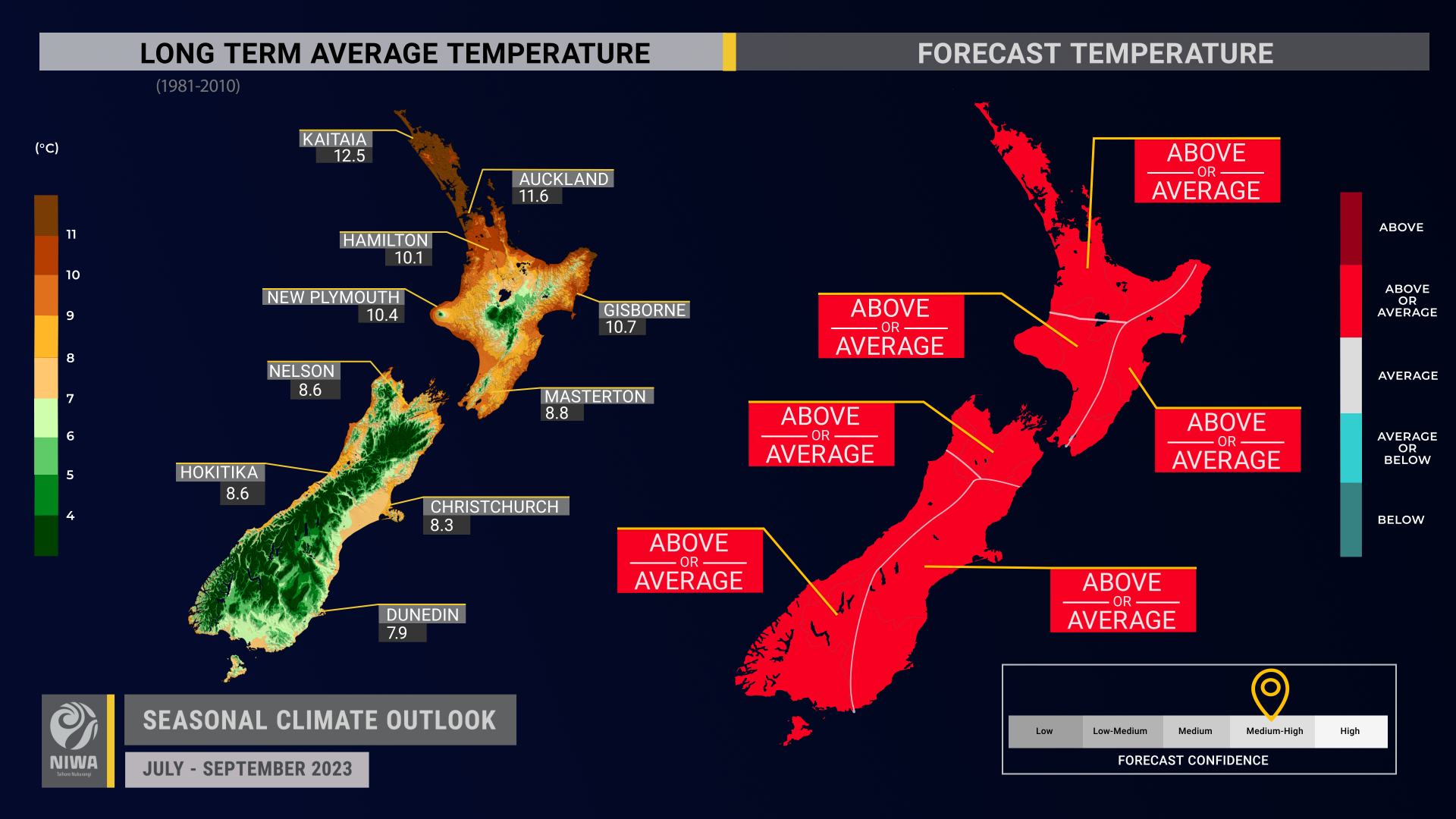News
New Zealand’s Record-High September Temperatures Signal Climate Change Challenge

(CTN NEWS) – New Zealand, known for its mild and temperate climate, has been experiencing unprecedented weather patterns in recent years.
After the Northern Hemisphere endured its hottest summer on record, New Zealand’s usually cool spring season has also shattered records, with the country recording its hottest September ever.
This alarming trend underscores the impact of climate change on the region and raises concerns about what lies ahead for the nation’s climate.
September Heatwave
New Zealand’s National Institute of Water and Atmospherics (NIWA) recently reported that September 2023 was the hottest in recorded history.
The nationwide average temperature for the month stood at 11.9°C, a staggering 1.3°C above the 1991-2020 September average.
This significant departure from the norm is not only a cause for concern but also a stark reminder of the ongoing changes in the global climate system.
Regional Variations
The September heatwave affected every region in New Zealand, but specific cities experienced distinctive weather patterns. Auckland earned the title of the warmest city, while Tauranga enjoyed the sunniest conditions.
Dunedin, on the other hand, faced a dry spell, making it the driest of the six main centers.
Wellington experienced uncharacteristic wetness and lower sunshine hours, while Christchurch held onto its reputation as the coolest city.
Record-Breaking Temperatures
Perhaps the most striking aspect of this unprecedented heatwave was the high temperatures recorded in various parts of the country.
Wairoa, situated on the North Island’s east coast, reached a scorching 29.6°C on September 21st, setting a new record for the highest September temperature on record in the North Island.
The South Island also experienced record-breaking daily maximum temperatures, with Oban in Stewart Island reaching 23.5°C—far higher than its typical February maximum temperature.
El Niño’s Influence
One significant factor contributing to these extreme weather patterns is the arrival of El Niño conditions, as declared by NIWA. El Niño tends to bring warmer winds from the west and northwest, leading to drier conditions on New Zealand’s east coast.
These warmer air masses have sometimes been transported from places like Sydney, where temperatures have soared into the mid-30s.
Future Climate Challenges
While El Niño is expected to persist into the summer months, it is essential to acknowledge the broader context of climate change.
Climate scientist Gregor Macara from NIWA highlights that while El Niño historically brings warmer conditions, climate change is intensifying the heat.
“It’s shifting the odds of being in high temperatures because our base temperature is warmer nowadays than it has been in the past,” says Macara.
The implications of these changes are profound. As New Zealand continues to experience unseasonable warmth, it faces the potential for sudden, extreme weather events, including increased rainfall and flooding in some regions, and drought in others.
Climate change is exacerbating the unpredictability of weather patterns, putting communities and ecosystems at risk.
Conclusion
New Zealand’s record-breaking September temperatures serve as a stark reminder of the challenges posed by climate change. While El Niño contributes to these weather extremes, it is the underlying warming of our planet that intensifies their impact.
As New Zealanders adapt to a changing climate, they must also advocate for sustainable practices and policies that mitigate the effects of climate change.
The nation’s response to these challenges will play a crucial role in preserving its unique environment and securing a sustainable future for generations to come.
RELATED CTN NEWS:
Five People Injured In Shooting Incident At Morgan State University In Baltimore
Historic House Vote: Kevin McCarthy Ousted As Republican Speaker Amid Party Infighting
India’s Outdated Blood Donation Policies Exclude LGBTQ+ Donors Despite Urgent Need































